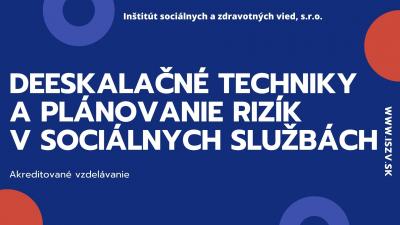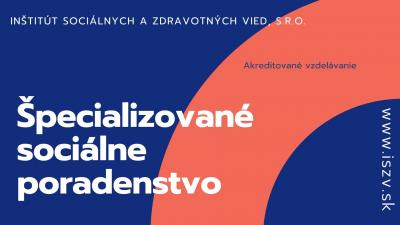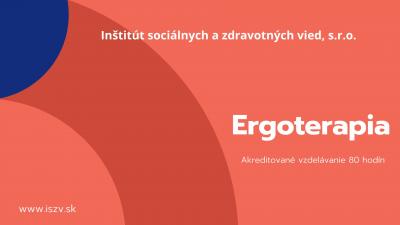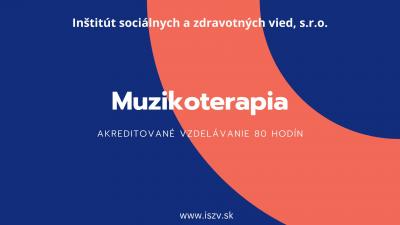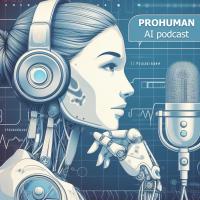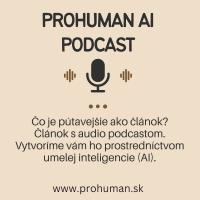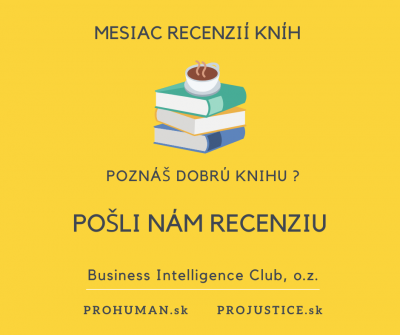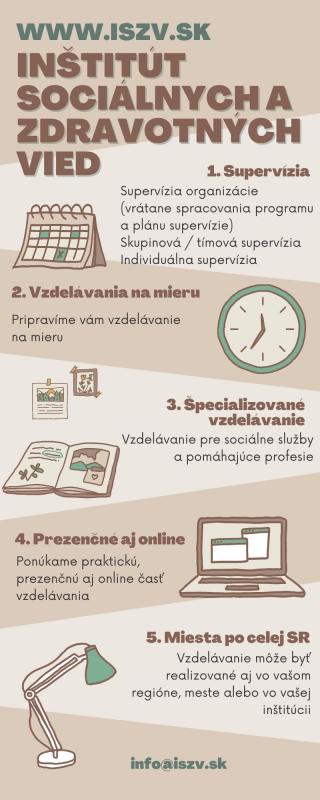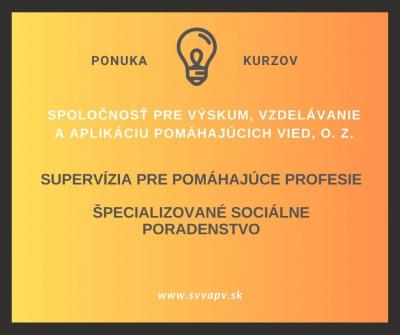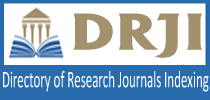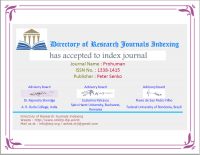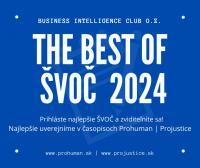Prejavy sociálnej chudoby - diskriminácia profesijne aktívnych seniorov
Abstract: In this paper we highlight the paradoxical modern social phenomenon in terms of building a knowledge-based society, which is the social and professional discrimination of seniors collar workers in the workplace. Note the professional handicap collar workers seniors due to the calendar age. The problem is presented in the context of spirit poverty manifestations in society.
Key words: spirit poverty, professional discrimination of seniors, active aging.
Abstrakt: V príspevku sa zaoberáme paradoxným sociálnym javom vedomostnej spoločnosti, ktorým je sociálna a profesijná diskriminácia duševne pracujúcich seniorov na pracoviskách. Poukazujeme na sociálnu diskrimináciu duševne pracujúcich seniorov z dôvodu ich kalendárneho veku. Problém prezentujeme v kontexte duchovnej chudoby prejavujúcej sa v spoločnosti.
Kľúčové slová: duchovná chudoba, profesijná diskriminácia seniorov, aktívne starnutie.
1 Spirit Poverty and Spirit Crisis in a Social Context
Spirit poverty entails those of material and social character, and so the social work has to express its identity of science as well as its practice also in that way that its social benefit would be reflected in enhancement of people’s social self-help, in the support of their actions and behaviour. With the aim to support the process of achieving social-psychic maturity and man’s responsibility for their own life.
Social work has to be an effective and real, not only declared, support of the social health. It is on providing the social help by means of tools which enable giving the support to people in socially exposed situations. And the way is that they will learn socially optimal communication and to form social relationships with other people. And also, that they will share responsibility for the state of their own psychic and social integrity and adaptation in social situations.
Social work does not a priori mean, under appropriate material security conditions, only maintenance of social problems and social pathology. However, social work should be real, not declared, development social program for the support of social and individual potential cultivation in individuals and social groups.
„There’s bigger hunger for love and awards than for a piece of bread in the world“ (Mother Teresa). And we want to ad that healing of this kind of poverty must begin also in particular social community and in specific social professional environment. This is valid also for the social environment in which the target group of professionally active seniors live their lives and which will be called attention to in this paper.
Disaster of social consciousness is the consequence of spirit crisis in society, and consequently also disruption of individual consiousness of persons, where the most extreme ideas find their homeplace. That’s why practical using of social ethics and its observance is so important in the life of society. Moreover, also in order to prevent that unethical decisions and actions of individuals and social groups might be accepted and become socially normal phenomenon and on the contrary, - ethical decision and action might become not-normal social phenomenon, and to prevent such a moral disruption to anchor in people’s thinking, motivation and actions. It should not be in contemporary epoch of humankind, when with the words of I. Frolov (Frolov, 1987, s.74) „science entered „the human age“, when all power of scienfic knowledge will head towards a man like to its main object. That, however, requires social conditions appropriate to reason and humanity, from which new ethos of science will rush“ and we would like to point out that not only ethos of science, but also that of social behaviour and people’s action. Further on, I. Frolov makes a statement: „in this phase a man may become aware of their uniqueness, rationality and humanity, though today we cannot envisage what consequences it may bring about“ (item). Humanistic approach, according to this author, presumes „new scientific and philosophical understanding of human life sense, and at the same time holistic, moral and social progress of the humankind nowadays and in future. Yet, there is a lot that a man will have to change and overcome on this journey...“ (item).
In the following text we will bring at least some of the ideas from inspiring contribution of the herein mentioned author, which has indirectly touched also the problems of the employed, i.e. professionally active seniors, in free retelling. As for the problems concerning the human life prolongation, these are connected with considering the topic of life sense and its value. This solution is possible in philosophical, psychological, social, ethical, moral and humanistic level of the problem.
1.1 Homo longevus – What‘s the Purpose of Human Life Prolongation?
With regard to the problems of human life prolongation I. Frolov makes an inquiry – what time of prolongation is in question. Is it a biological time of an individual, or social-personality time limited by emotional, psychological and moral capital? The crutial reality for us regarding the theme of professionally active seniors is the following: „Prolongation of human life is sometimes understood as scientifically and socially well-argued aim and then a question arises why a personality and society do need to prolong human life?“ (Frolov, 1987, p. 68). There are discussions about that we are at the threashold of an era when life conditions, life style, personal development and medicine will change homo sapiens to homo longevus, a long living man, „when men and women in mature age will preserve full vigor of brain and body. And if so, then we must look at life with different eyes“ (item, p. 71).
We identify with this opinion with remark that with regard to the target group of employed professionally active seniors, we have in mind socially conditioned length of life, when social conditions of life and environment have a decisive meaning and when “we can divide the process of human social aging to normal aging – when a man grow older due to drawing energy from the reserve of human organism, and pathological aging, conditioned by negative impact of the social factors determining natural course of aging. Then the basic task remains to reduce the reasons conditioning pathological process of social aging to minimum. This task covers up with broader conceived social tasks aimed at rebuilding of a society in such a manner that it would provide a man with normal human conditions of existence“ (item, p. 69). We agree with this opinion and remark that it is in full measure valid also for the conditions of professional selfrealization in senior age, and even more to educated people and collar workers.
Regarding the real discrimination problem of collar workers seniors in their professional selfrealization, it is inevitable to change the prejudices against employed seniors in the sense that a different view of life will be asserted. And this new view will cause that from their own experience the elder people will get a persuasion that it is worth, as long as possible, to live an active and professionally productive life and that they would not be exposed to social stress, frustration and they would not experience professional discrimination from the younger generation, based only on their calendar age. R. Čornaničová (1998) differentiates between the calendar and functional age of an individual man. Without respecting the individual differences of a senior personality, the functional age – complying with the real man‘s functional potential, his body and soul, as well as social adjustment - is being ignored.V.Pacovský (1997) differentiates among biological, psychological and social age of an individual man.
I. V. Davydovsky (In Frolov, 1987, p.93) supposed that long life and the problem of active creative old age connected with it is real and basically it means a new man fully aware of their potential posssibilities and who have a motivation to realize their mission on the Earth. According to us it is apparent that such people – under the assumption of health and propper working possibilities, will also in senior age have a strong motivation to creative realization of their individual potential, their talent and gift which they feel they would give the human community like the baton in relay.
Professionally active seniors are persons in the age of cca 60 to 75 years. According to the World Health Organization the period of adulthood may be divided to: 45 to 59 years – middle age; 60 to 74 years - higher age, early old age, presenium; 75 to 89 years – old age, advanced age, senium; 90 and over - longevity. It is a subgroup of seniors generation which may be characterized in the frame of physical onthogenesis as that of the biologically elder. From the point of view of solving the psychosocial crises in this age period these persons may resolve the crisis with personal stagnation, and yet, they would rather prefer the manner of generativity, that means living a productive and creative life in working field, in family life and also in the field of selfrealization based on their interests. It may be assumed that professionally active seniors are aware of continuity of their life and they perceive it as a whole having its meaning and order. Their selfperception involves continuity and a whole, too. -That means as integrity, which serves as a mirror to all the person‘s past history and their past deeds, and all their achievements, and namely what they still want to reach in a senior age to fullfil their mission on the Earth also in the manner of a creative fullfilling the tasks of professional selfrealization which is practically endless. Integrated men are also well-balanced and satisfied, and their richness stems in wisdom which is knowledge streaming from reason as well as from heart.
The target group - represented by professionally active collar workers seniors, whose priority is to remain in the working environment - to which more attention is drawn to in this paper, have a strong inner, that means psychological motivation to perform profesional activity. Mostly these people have a high motivation of selfrealization and strain to finish lifelong scientific, artistic, or lifelong professional activity of different kind. We may say that these are selfrealizing personalities. In his holistic – clinical studies A. Maslow, creator of humanistic psychology, has assorted groups of characteristics describing selfrealizing people and it is necessary to call attention to them. They are briefly mentioned in this place (Maslow, 1970, p.153 - 174, In Hall - Lindzey, 1997, p.175):
Their life orientation is realistic.
They accept themselves, the others and the world of people at all, as well as the nature like the things are.
They are spontainneous in behaviour and actions, in communication, in interpersonal relations.
They are more oriented on various problems and life tasks resolving than on their personality.
They create social atmosphere of objectivity, neutrality, generosity all around.
They have an intensive need to be themselves, to have their own privacy.
They can see the people and things, situations and problems in a new light, they are not stereotypic.
In majority they have mystic or spiritual, not only religious experiences.
They identify themselves with human gender, they have a feeling for community and social interest.
They prefer deep human relations only with some, but especially loved and loving people, to shallow relationships with many people.
They respect and stick to democratic values and attitudes.
They have more philosophical than ironic and sarcastic sense of humour.
They are highly creative. They are resistant towards conformity regarding culture.
They transcend the environment rather than only cope with it.
In people’s life – both the individuals and societies, there is a link among generations, connection, bond which cannot be erased and it is necessary also to respect it in the sake of social health of community. All generations flow in the river of time. And each of them has its own life developmental (determined by genotype) and educational tasks (i.e. socializing, educational and training tasks, which result from people’s active learning) . We have been for a long time dealing with life developmental and educational tasks with great attention and the results of our theoretical work are comprised in various publications (Machalová, 2006; Machalová, 2010 and elsewhere).
Life developmental and educational tasks of seniors, resp. persons of late adulthood require their vigilance, awareness, fexibility of thinking, feeling, action and readiness to learn. Life developmental and educational tasks enhance the development of intellect, emotions, feelings, motivation, values and characteristic traits of individuals. And that under circumstances which are specific for the senior age. Such circumstances may be for instance leaving the employment and getting a retirement pension, copying with ilnesses in family, lost of a life-partner by their passing away and other. On the other side, however, also new challenges for the new activities may appear, arousing a hidden potential to them and their natural need to live like a creative man. „Let’s learn how to live until we die“, a famous philosopher and life expert – Seneca has articulated. Also in a senior age it is important to produce ideas, create social relationships, make objects. For seniors of nowadays, according to us, nontraditional or absolutely new and unknown-before tasks of life are appearing. For example:
For professionally active collar workers seniors, as well as for other groups of creative people, senior age does not represent only a period of giving the fruit of their work. The results of the lifelong effort of these people have to be perceived like a prescious input and enrichment of the data bank of life and professional experiences and knowledge of the particular society of people. How else would the river of life have become that powerful - the weeker flow of which had been created from little streams of the learning youth at first, later on, growing stronger, thanks to the inflows of middle-aged people’s activities, and finally the river became powerful in synthesis of knowledge, experiences and actions of persons in a senior age.
Discrimination of Professionally Active Seniors
Let’s begin with free interpretation of A. Carpentier words (1987,p.169), who has exactly described what we have in mind and from whom we have taken the term „Epoch of Impatience“ in this paper.
Our epoch has been running in the sign of impatience. The whole world is in a hurry to somewhere. The whole world want to taste the fruit of their effort immediately. Some want to make a heap of material possessions, the others want to achieve success. An artist as well as a scientist want to acquire the whole wealth of artistic and scientific means in the shortest time to make a break in the development of visual art, music, literature or science in the period of two – three years, and to master a quick-jump break in their own professional career. Each individual, each human collective can feel a secret and insistent thirst for the new whether it is in art, science, production field, or in a personal career.
From the labor market experiences, e.g. in Slovakia, there is an apparent trend of a high motivation to achieve quick successful and economically - as well as power-advantageous professional career.
However, nowadays there are many discussions on prolonged professional career up to the higer age, not only because of the fact that e.g. in European countries people enjoy good condition also to the higher age and so the professionally capable senior population is growing up, but also because of that the state economics are overloaded by pension pays to the high number of senior pensioners.
But political decisions about prolongation of the retirement age of the employed in senior age (i.e. cca from 60 years) are on one side and live working reality of the employed seniors on the other, and in many cases socially and also psychologically derogatory. From experiences in counseling and also psychotherapeutical practice with people in senior age, as well as from observing the life of the employed seniors, we know the cases of hidden and open discrimination and surpressing the right for equal working conditions, for dignity and respect to their personality at their workplaces. We have mentioned to pay particular notice to the situation of professionally active collar senior workers. We want to call attention to a poor use of the high human potential of this seniors group. And also to the need to pay particular notice to the hidden and real discrimination of these seniors in their life‘s mission quest realized by collar work in various professions and jobs.
On one hand, the society - as it is well known – looks for the ways how to influence young talented people so that they would not escape abroad after completion of the higher education, and so to prevent the export of the country education.
And also, how to prevent the „brain drain“, i.e. know-how export, the intellectual capital of the country. And on the other hand, country education and accumulated intellectual capital of the professional collar workers seniors are wasted. Collar workers seniors: pioneers, creators of various kind of works, book-authors and authors of conceptions, founders of institutions, designers of social programs, strategies and projects, field-of-study originators, schools‘ founders, inventors, innovators, „workhorses“ of science, art, technics and other kinds of human activity, educators and teachers of generations - this group is not only deprived of approriate social esteem, regard and respects, they are not even given as many of social means for the further wealthcare of their human, and that means also their intellectual potential, what the gift of collar workers seniors for the society is worthy of.
And also in the above mentioned we may look for manifestations of seniors discrimination at workplaces and also the problem of intergenerational misunderstandings and manifestations of discrimination and intolerance also with professionally active collar workers seniors. A that mainly and above all from the only reason – the calendar age of the employed seniors.
What cases of discriminating the professionally active seniors collar workers due to the calendar age are these? We will mention only some of general indicators of discrimination of professionally active collar workers seniors at workplaces:
- Dismissal from employment, due to the age.
- Lowering the functionary position from leading post, due to the age.
- Obstacles in further professional qualification growth, due to the age.
- Lowering the rank with regard to work position and category, due to the age.
- Lowering the salaries at changing the work position, due to the age.
- Social marginalization in a working collective, due to the age.
- Remarks on professional limits and those of the worker–senior development, due to the age.
- Comments on worker‘s status without prospects for the company, due to the age.
The reason of the above-mentioned manifestations of collar workers seniors at workplaces should be found also in belittling the value of seniors human personality in society at all, and in this manner also in the eyes of the younger colleagues at workplaces. While speaking in a metaphor, ignoring active collar workers seniors many of the younger „are unaware of their own deeds“. Since the majority of colleagues - seniors, who are nearby, are spiritually, psychologically and socially mature human beings and self-realizing individualities, who themselves represent the source of knowledge for the others. And so the younger may learn on the model of their advanced personality, reach a higher level of their qualification and professionality and comprehend the people’s life in their presence. Professionally active, collar workers seniors want to work, want to self-realize and want to give the Life what they have been granted, and that means the gift and talent. They have gained interests from their gift with their life-long effort, study and activity. And now they are giving themselves through their own creative self-realization. Their duty, as well as the right, is to work productively also in a senior age and they do deserve – with regard to their work done for others – optimal and well-disposed conditions, esteem and respect.
Author: Doc. PhDr. MÁRIA MACHALOVÁ,CSc.
The Orthodox Theological Faculty of University of Prešov, Prešov – Slovakia
Literatúra:
CARPENTIER,A. Epocha netrpezlivosti. In: Budúcnosť v prítomnosti. s.169 - 183. Bratislava: Aurora 1987.
ČORNANIČOVÁ,R. Edukácia seniorov. Bratislava: Univerzita Komenského 1998. ISBN80-223-1206-1.
FROLOV,I. Budúcnosť ľudstva. Humanistické aspekty pokroku vo vede. In: Budúcnosť v prítomnosti. s. 53 - 75. Bratislava: Aurora 1987.
HALL, C.S. - LINDZEY,G. Psychológia osobnosti. Bratislava: SPN 1997. ISBN 80-08-00994-2.
MACHALOVÁ,M. Psychológia vo vzdelávaní dospelých. 2.vyd. Bratislava: Gerlach Print 2006. 224 s. ISBN 80-89142-07-9.
MACHALOVÁ,M. Biodromálna psychológia pre pomáhajúce profesie. Brno: IMS 2010.
220 s. ISBN 978-80-87182-10-9.
PACOVSKÝ,V. Proti věku není léku. Úvahy o stárnutí a stáří. Praha: Karolinum 1997.
SYCHA,M. Vzdělávání dospělých a sociální změna. (Analýza vztahu závislostí mezi změnami ve společnosti a vzděláváním.) Disertační práce. Praha: Karlova univerzita, Filozofická fakulta 2012. 185 s.
